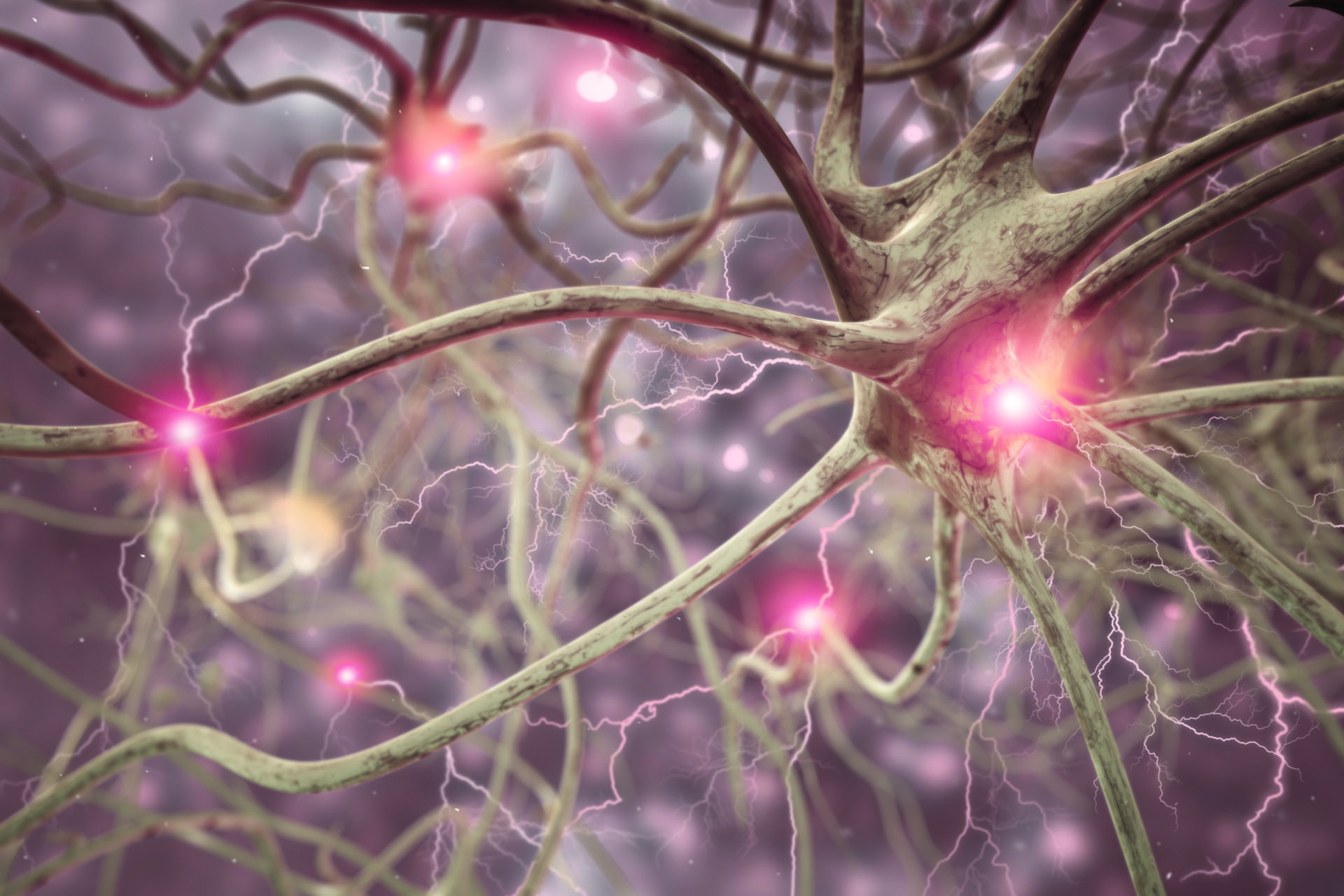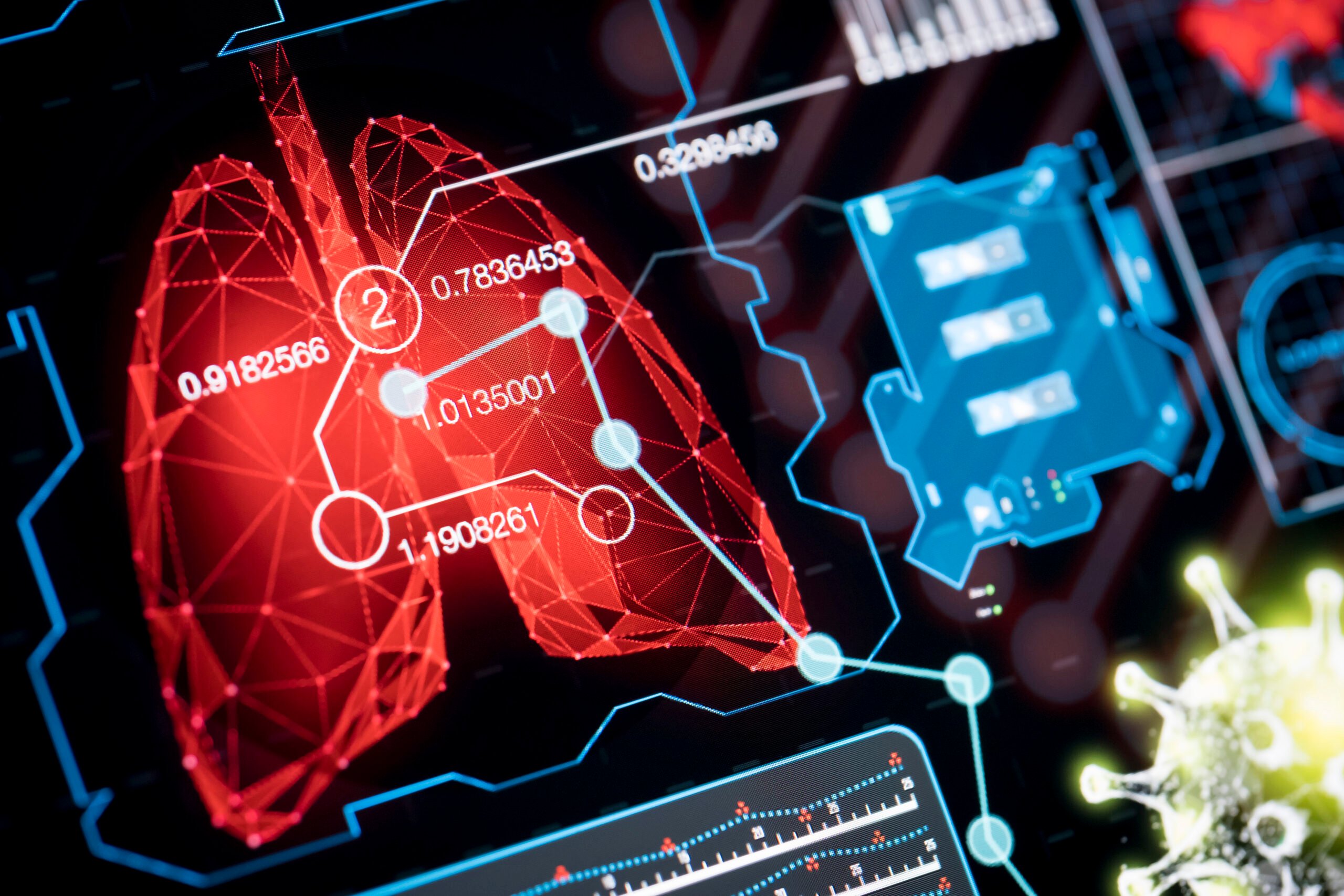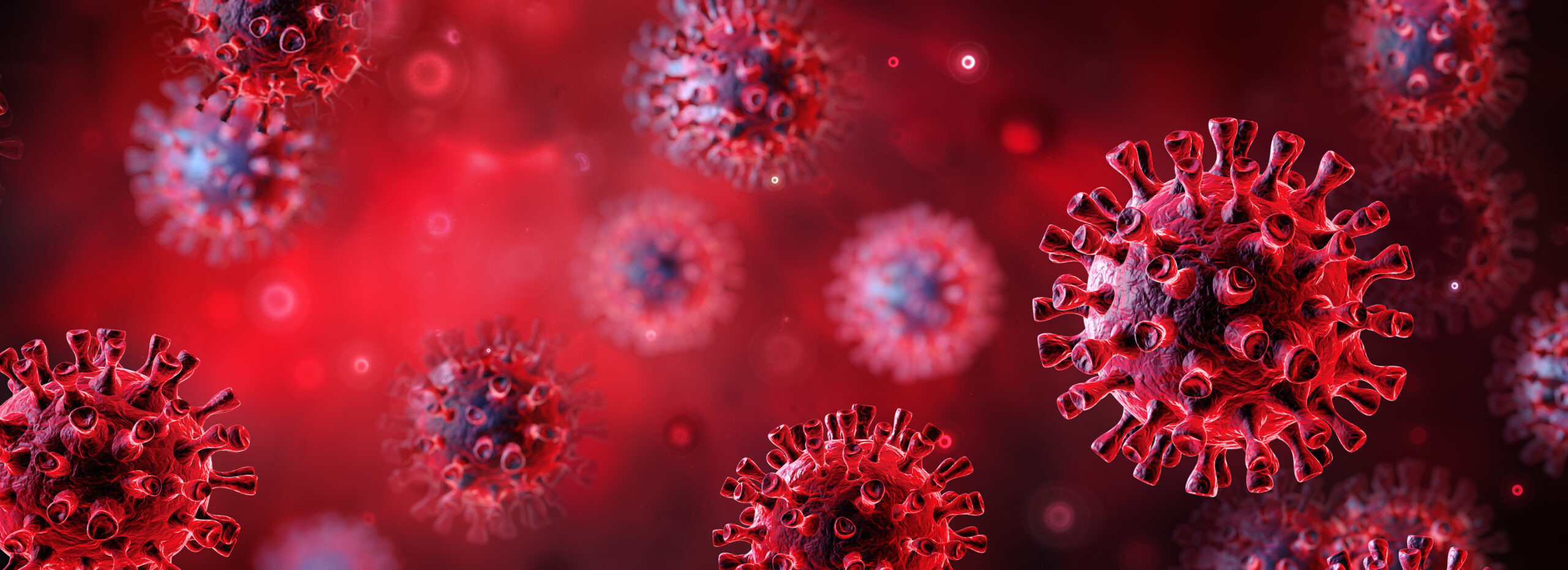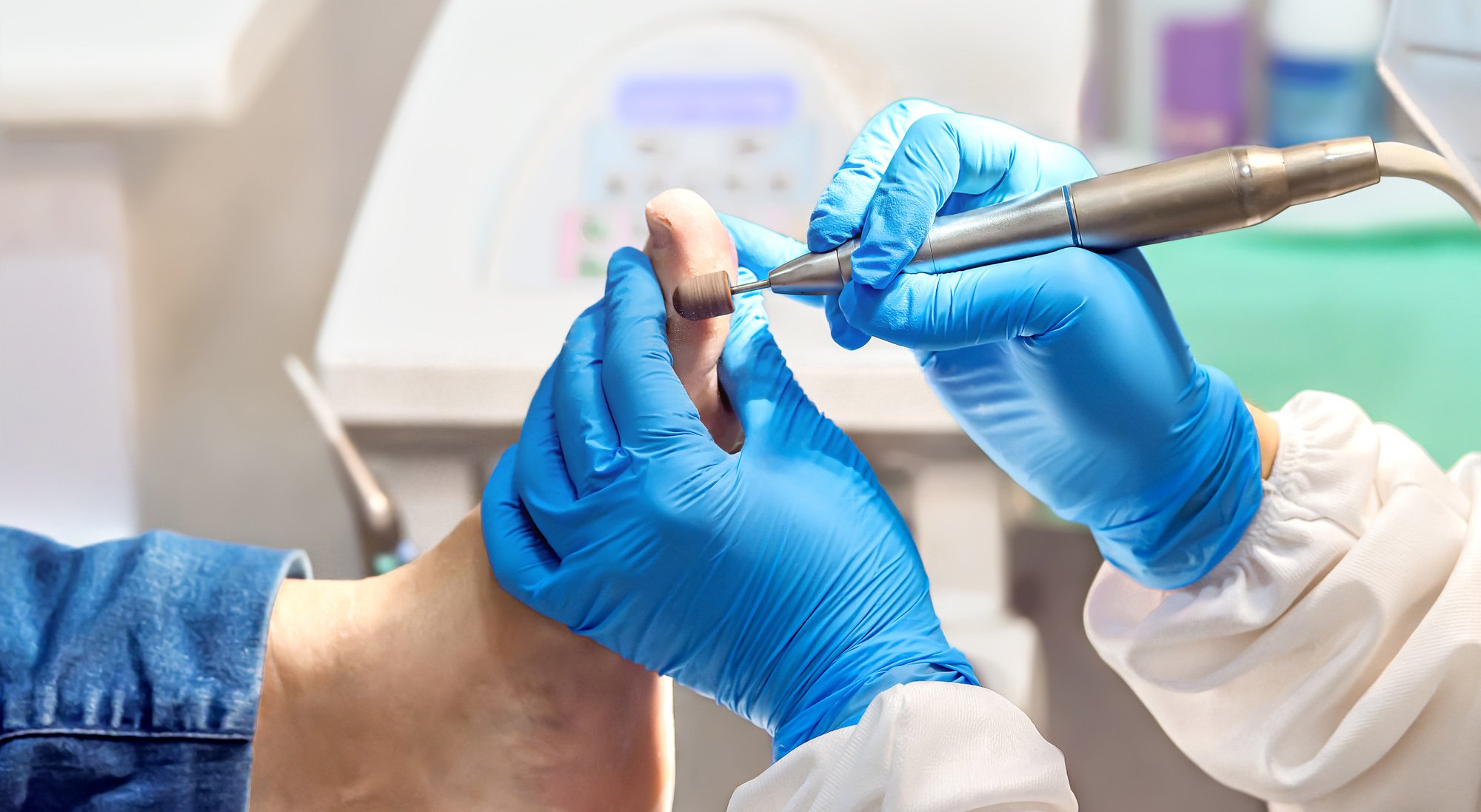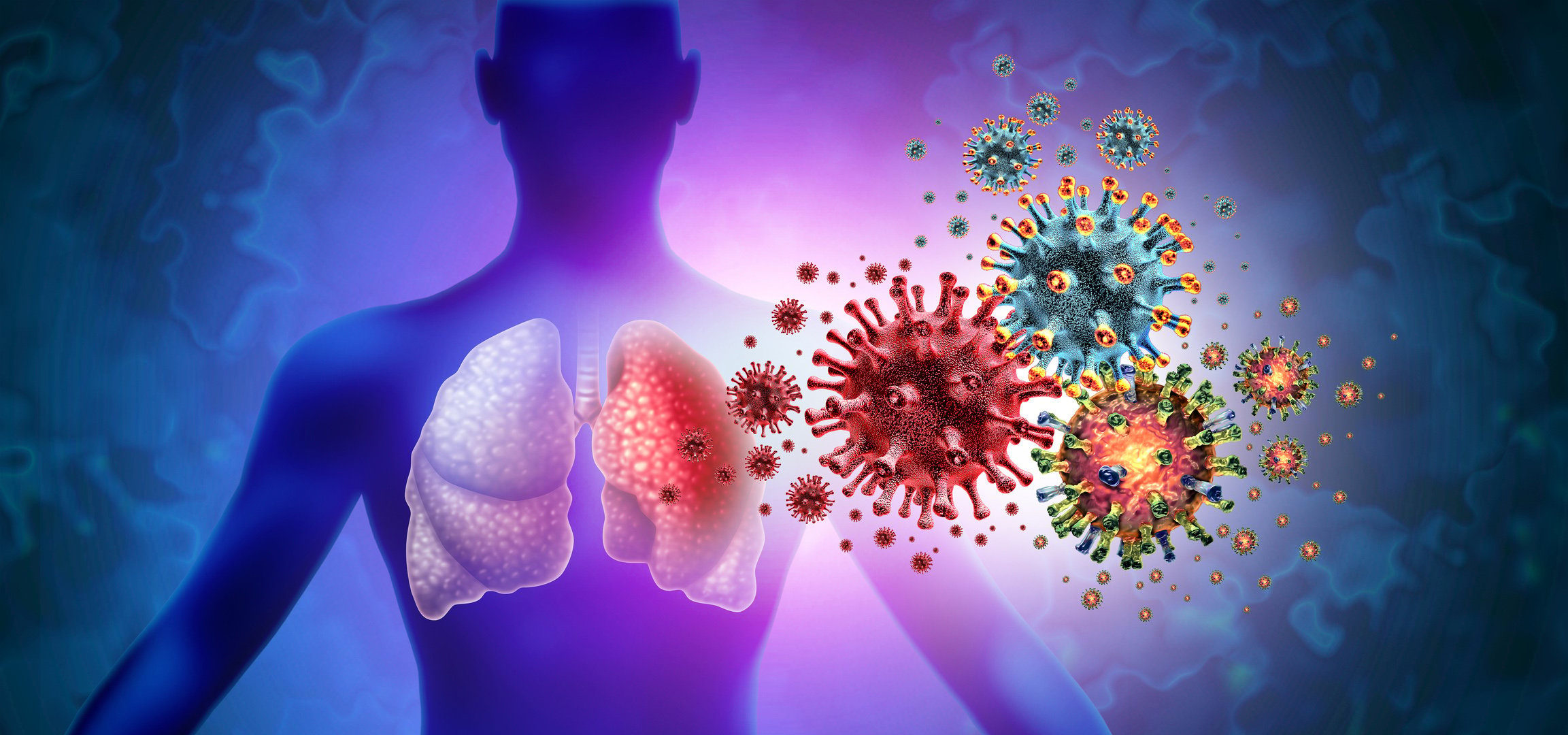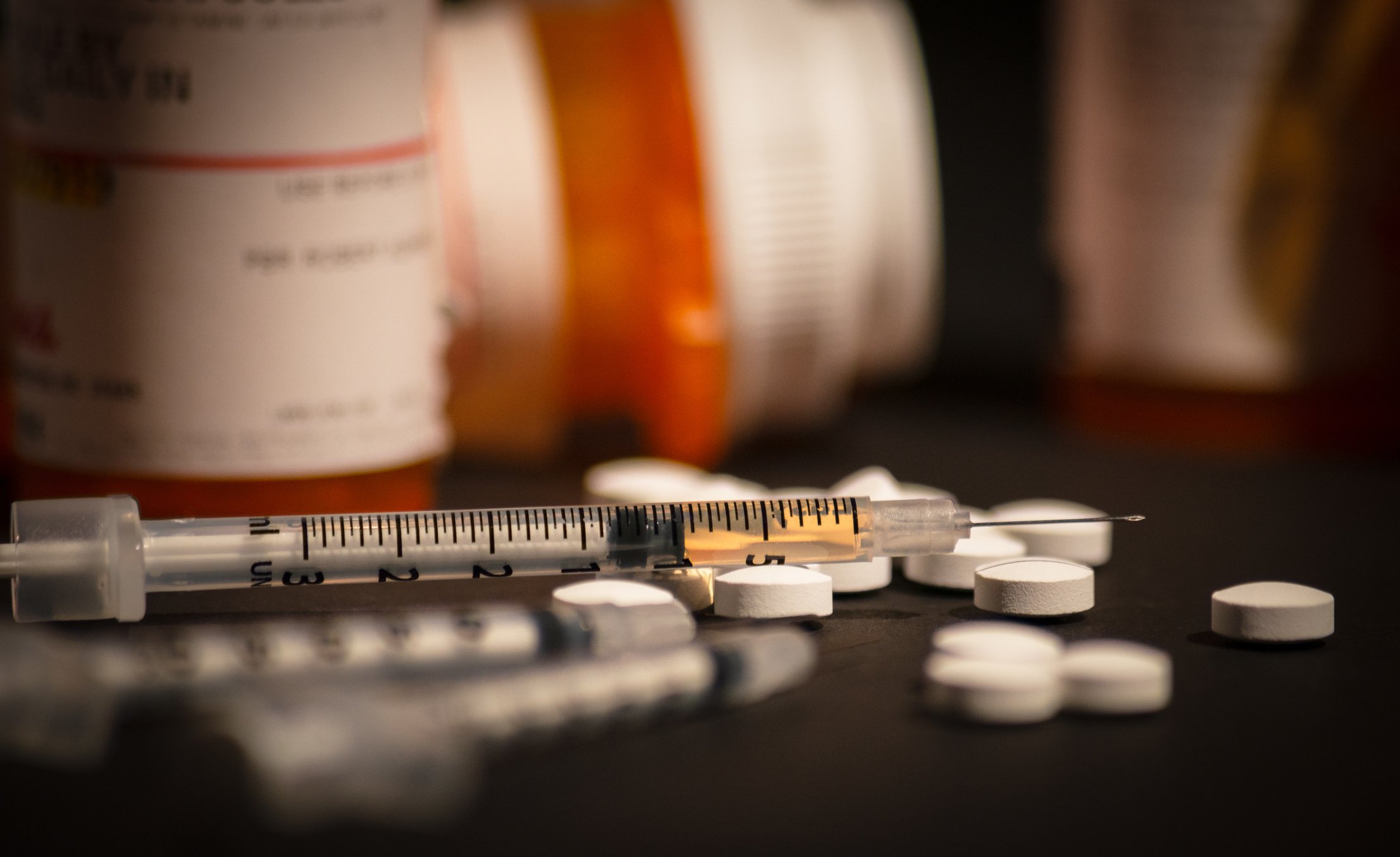A proportion of patients suffer from persistent symptoms after acute covid-19 disease. Neurological symptoms are often in the foreground. Although SARS-CoV-2 does not affect nerve cells, covid-19 disease can cause damage to the nervous system. Researchers at the University of Basel and the University Hospital Basel have elucidated mechanisms behind “neuro-covid” and identified possible starting points for interventions.
(red) Quite a few have lost their sense of smell and taste with the coronavirus infection. In others, the disease has taken an even more severe toll on the nervous system, ranging from persistent lack of concentration to strokes. Researchers led by Prof. Dr. Gregor Hutter of the Department of Biomedicine at the University of Basel and the University Hospital Basel now report new findings on the development of “neuro-covid” in the journal Nature Communications. More specifically, the team investigated how different severities of neuro-covid can be detected and predicted in nerve fluid and blood plasma of affected individuals. Their findings also provide clues as to how neuronal damage from Covid-19 could be prevented. The study included 40 Covid 19 sufferers with varying degrees of neurological symptoms. The research team examined their cerebrospinal fluid and blood plasma compared to samples from a control group to identify changes typical of “neuro-covid.” In addition, the researchers measured the brain structures of the subjects and interviewed them 13 months after their illness to determine any lasting symptoms.
Impaired blood-brain barrier
Especially in the group with the most severe neurological symptoms, the researchers found an association with an exuberant immune response. First, there was evidence that the blood-brain barrier of affected individuals was affected. The study authors assume that the so-called cytokine storm, i.e. the massive release of inflammatory factors in response to the virus, is probably the trigger. On the other hand, the scientists came across antibodies directed against the body’s own targets – i.e. signs of an autoimmune reaction as part of the exuberant immune response (box) . “We suspect that these autoantibodies enter the brain through the holey blood-brain barrier and cause damage there,” explains Prof. Hutter. The immune cells specifically responsible for the brain, the microglia, were also excessively activated.
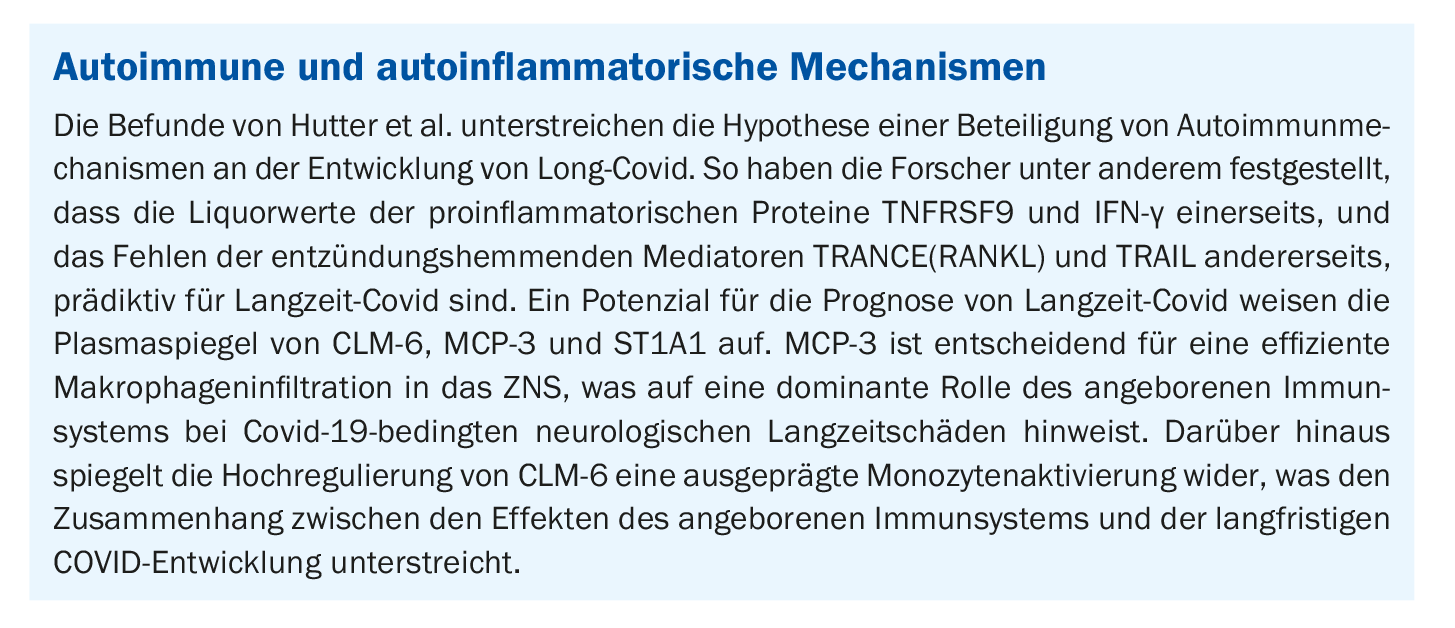
Long-term goal: predictive blood test
In a further step, the research team investigated whether the severity of neuronal symptoms is also reflected in brain structures. In fact, they found that sufferers with severe neuro-covid symptoms had lower volume at specific sites in the brain compared to healthy subjects. The olfactory center, i.e. the olfactory brain area, was particularly affected. “We were able to link the signature of certain molecules in blood and cerebrospinal fluid to an exuberant immune response in the brain, decreased brain volume in different areas, and neurological symptoms,” Prof. Hutter said. These biomarkers now need to be tested with a larger number of participants. The goal would be a blood test that can predict severe courses, including neuro-covid and long-covid, early in an infection.
Biomarkers as potential targets against sequelae
These same biomarkers provide clues for potential therapeutic targets of drugs aimed at preventing sequelae of covid 19 disease. One of the identified biomarkers in the blood, the factor MCP-3, plays a central role in the exuberant immune response (box) . Prof. Hutter sees potential for inhibiting this factor with drugs. “With our study, we show how coronavirus can affect the brain,” the expert summarizes, adding, “The virus triggers such a strong inflammatory response in the body that it spills over to the central nervous system. This can disrupt the cellular integrity of the brain.” One overriding goal must therefore be to recognize and slow down the excessive immune response at an early stage, the researcher sums up.
Sources:
- “How Covid-19 leads to neuronal damage,” University Hospital Basel, Nov. 14, 2022.
- Etter MM: Severe neuro-COVID is associated with peripheral immune signatures, autoimmunity and neurodegeneration: a prospective cross-sectional study. Nat Commun 2022; 13: 6777. https://doi.org/10.1038/s41467-022-34068-0
HAUSARZT PRAXIS 2023; 18(1): 46
InFo NEUROLOGY & PSYCHIATRY 2023; 21(1): 32.

